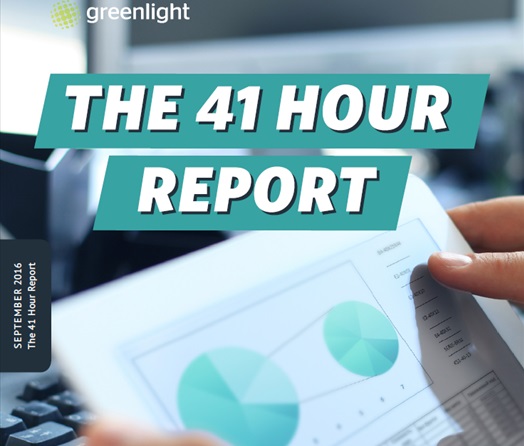Digital marketers will play a greater role in business, getting a more prominent say in decisions made at the top level of firms, according to new research.
The study, from Greenlight Digital, reveals that almost half (46%) of digital marketers believe their influence across the business will increase in the next five years.
Greenlight commissioned the survey of 218 full and part-time digital marketing professionals to assess the current state of the industry. The second series of findings from Greenlight’s 41 Hour Report looks at how digital marketers’ relationship with the C-Suite and others, as well as how their role and the tools associated with it, are developing.
Gender gap – it’s not just about pay
The majority of digital marketers (81%) feel supported and recognised by the C-Suite in their company – arguably one of the reasons they believe their influence will steadily increase as the C-Suite clearly views them as key business drivers.
However, men feel the big bosses have more belief in them than women do. Almost half (42%) of men strongly feel the C-Suite values the marketing function as a key revenue driver compared to just a third (34%) of women. It seems men also have a better relationship with the big bosses as 44% claim to have a very strong working relationship with the C-Suite compared to just a third (33%) of women. So it appears there is not just a gap when it comes to salary between men and women in digital marketing, but also in their confidence when it comes to the C-Suite.
The tools of the trade
When it comes to choice of social communication platform, Instagram comes out on top with 70% identifying Instagram as the channel to use most in their marketing strategy in 2017. Surprisingly, 40% of digital marketers will invest more in Twitter next year, even with its declining user base and share price.
Worryingly it appears older digital marketers are investing much less in some of the most popular consumer social channels, such as Snapchat and Instagram. Greenlight’s research finds more than half of 50+ year old professionals have no plans to use Snapchat (58%) and Instagram (50%) in marketing campaigns next year, compared to less than a third of the under-30s (Snapchat: 31%; Instagram: 20%).
Be it for advertising, influencer engagement or more, interestingly only half (53%) of digital marketers plan to use virtual reality in their marketing strategy.
Skills for the job
The ability to code is fast becoming a tool expected in digital roles today, a tool that many believe should even be implemented into the school curriculum. In fact, a third (35%) of respondents view it as a skill required to do their job. Yet, this varies greatly depending on age as half (50%) of marketers’ under-30 believe digital skills and coding are essential to their role, compared to just 11% of the over-50s.
However, it is data analysis that comes out on top as the most integral skill for the job, with 68% saying they analyse data on a daily basis, followed by content optimisation (59%) and interestingly a relatively personable attribute – the ability to align with the sales team – coming in third, with 58% referencing it as most important.
Skills that many closely associate with digital marketing – SEM and SEO – are viewed by just 39% as integral to their current role, arguably due to marketers working with third party expert agencies to support.
The developing role of the marketer
Everybody knows marketers love a buzzword and it appears this love has even spread to their job titles. But, exactly how much impact do the professionals behind these new, jazzy job titles make?
Coming out on top is the SEO Yoda with over half (54%) of digital marketers referencing them as having the most positive impact in the workplace. On the other side, when looking at who is deemed as having the least impact the research finds only a quarter (28%) think the Chief Digital Officer makes a positive impact. But, it is the Chief Digital Officer that digital marketers admit to working with the most – 38% of those surveyed have worked with one.
Commenting on the research, Andreas Pouros, COO and co-founder at Greenlight, said: “The fact that digital marketers feel as though they are adding value is great news for the industry. Clearly the C-Suite is just as invested in them as they are the business and why not? Digital marketing is a key tool for driving business growth. But, in doing so, digital marketers must ensure they are using the right tools in their marketing strategies, or they risk missing out on potential opportunities to drive business growth even further – much to the C-Suite’s disappointment. Where digital marketers are unsure of a particular channel, it’s crucial they invest time in understanding not only what it is but its potential to communicate with the audience.”
The 41 Hour Report examines the UK’s digital marketing landscape, assessing the emerging trends and developments that are impacting marketers today and are likely to have an impact in the future.
To download Greenlight’s report, click here.
Methodology
The findings of the report were researched by Morar research house. The findings were based on feedback from 218 digital marketers from across the UK and a full range of seniorities.
